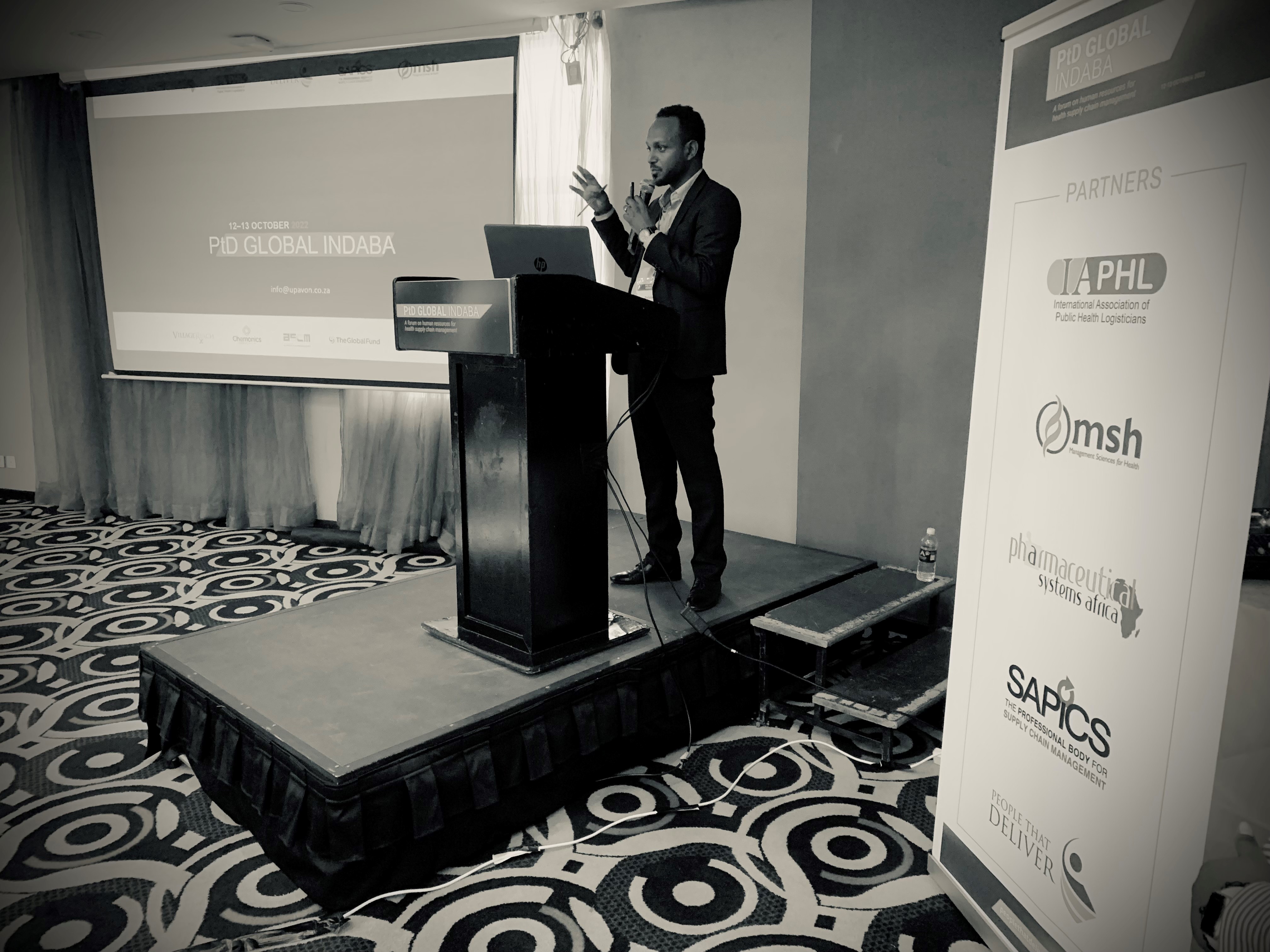The inaugural PtD Global Indaba wrapped up on 13 October 2022 bringing to a close two days of interactions between over 250 participants from more than 40 countries.
After officially opening the first conference to focus on HR for supply chain management in Africa, Zambia’s minister of health, Sylvia Masebo said, “Today I’ve learnt something that I didn’t know.” This set the tone for the event, at which representatives from government institutions, public and private sector health supply chain organisations, donor organisations and others shared challenges and offered solutions to supply chain problems.
The interaction between the health minister, Anne-Maryse K’Habore from the Purchasing Centre for Generic Essential Drugs and Medical Consumables (CAMEG) in Burkina Faso, and Terry Ramadhani from the Kenya Medical Supplies Authority (KEMSA) exemplified the frankness and openness that permeated the discussions over the two days of the conference.
Breakout sessions featured presentations grouped along the four pathways of the PtD Theory of Change: skills, staffing, motivation and working conditions, while the Open café allowed participants to engage in honest discussions in a more informal environment. The Indaba impulse talks meanwhile, put the spotlight on experts who provided powerful stories and innovative approaches to support the supply chain workforce.
Harnessing the power of collaboration to develop the supply chain workforce was the theme of day two. “When unpredictable events occur we sometimes lack organisational competencies. We have to invest in talent so that when shocks hit us again we are ready,” said Douglas Kent from the Association for Supply Chain Management (ASCM).
In the last session of the Global Indaba the audience was introduced to the future of supply chain in a panel discussion on supply chain management through the eyes of new entrants into the profession. Florence Mulenga, a student at the University of Zambia expressed her thanks to IAPHL – co-organiser of the PtD Global Indaba – for developing a platform for prospective and young professionals to learn.
This was echoed by students from Eden University in Lusaka who were given the opportunity to attend the Global Indaba, supported by PtD chair Lloyd Matowe.
Closing the Global Indaba Andrew Brown from MSH praised the delegates for their openness and commitment.
“We’ve been challenged about the role of the private sector and how it can work with the public sector. We’ve been motivated to really make a change in country contexts.”
He ended by challenging countries and organisations to capitalise on the momentum created at the Global Indaba and work even more closely together to ensure medicines are used well and safely, and to take even greater strides towards universal health coverage.
Before the Indaba kicked off, ASCM held a workshop during which they highlighted the strides the profession has made in welcoming diverse groups of supply chain professionals. And on Friday 14 October, PtD coalition member Johnson & Johnson invited participants to discuss women leadership in supply chain, during which Tiwonge Mkandawire from VillageReach praised the progress that has been made in welcoming women into the profession, but urged organisations to do more.
The Global Indaba was organised by People that Deliver with the support of its coalition members, in particular the International Association of Public Health Logisticians (IAPHL), Management Sciences for Health (MSH), Pharmaceutical Systems Africa and SAPICS.
The Association for Supply Chain Management, the Global Fund to Fight AIDS, Tuberculosis & Malaria, the Partnership for Improving supply Chain Management in Africa, Chemonics, VillageReach and Pamela Steele Associates were all proud sponsors of the Global Indaba.

